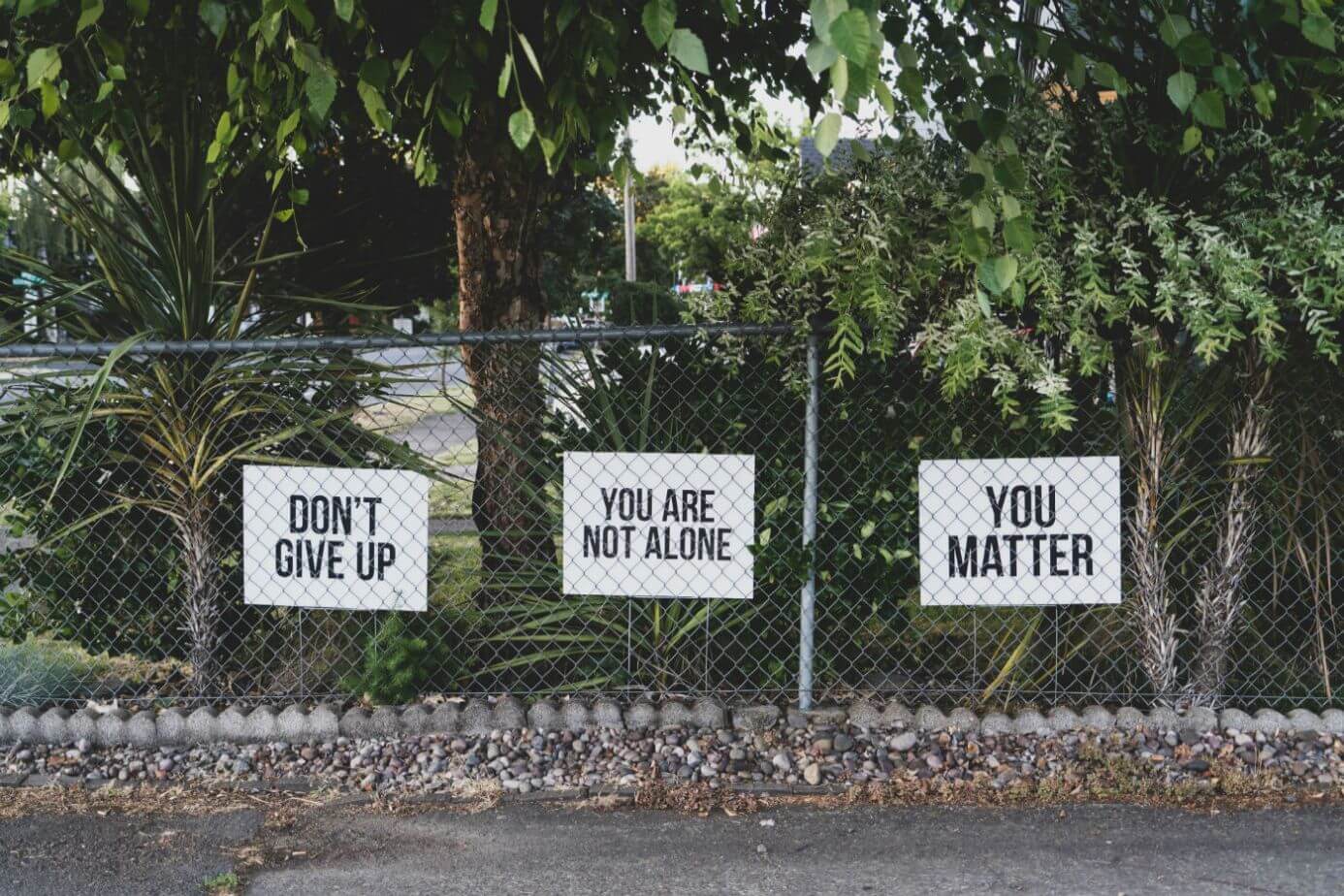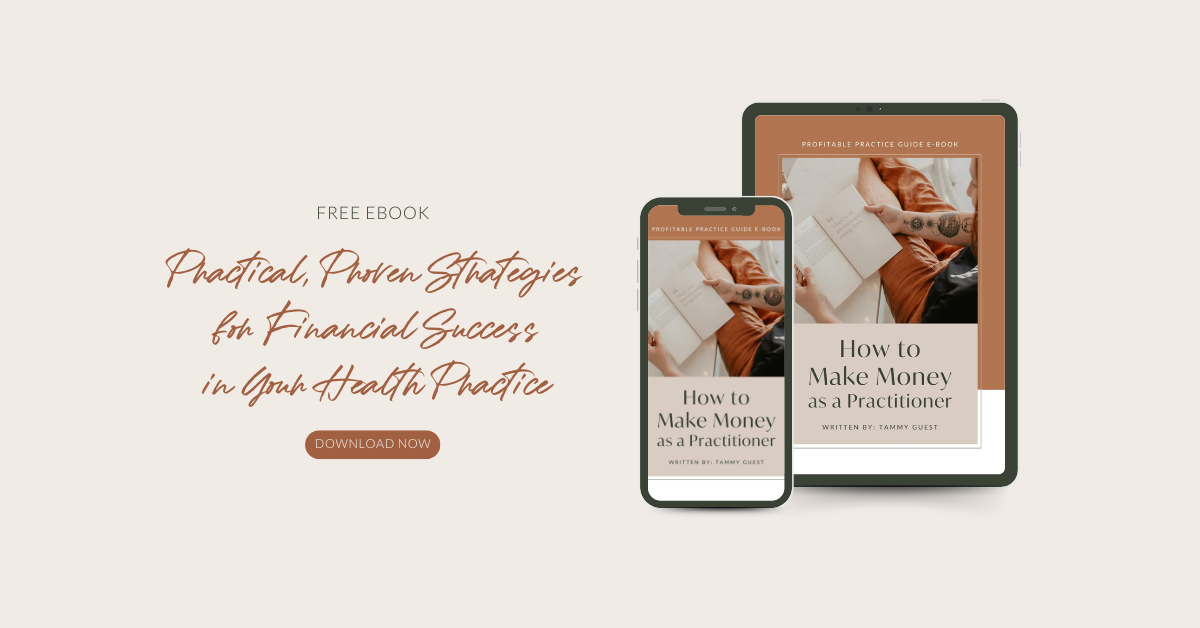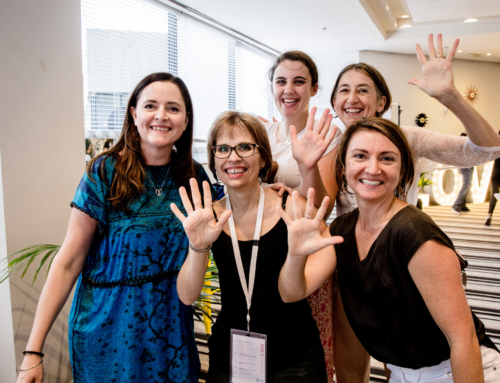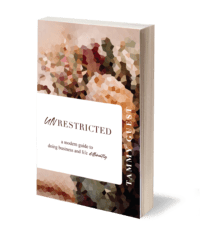The day I filmed this interview was, “Are You Okay?” day here in Australia, which coincided this year with Suicide Prevention Day and Suicide Awareness week. Extraordinary naturopath Carla Wrenn and I thought this would be a great time to discuss our take on practitioner burnout and overwhelm, and how we can support each other as professionals. We share how we, as practitioners, should be checking in and supporting each other to help prevent burnout and overwhelm, and how to notice the signs that things aren’t going well.
This is a really important topic that we need to have more of a conversation about. So please share this conversation with your fellow practitioners.
T: I’m super excited that we’re having this conversation because I think it’s something that isn’t being talked about. We talk about lots of other things, all the amazing things that are happening in the industry. But one of the things that came to my attention that we’re not talking about is the next stage after burnout and how we need to protect ourselves from that.
Patients are getting sicker and sicker, and when they’re not getting solutions but just offered standard care, they’re starting to come to our clinics. I feel there’s a little bit of a lack of training, perhaps on the colleges again, that we’re not getting some support in how to deal with those people.
C: The conversation we had the other day was really about how are we going to tackle this? How can we as people who have an opportunity to talk to other practitioners open up this conversation?
T: Yeah, so I might not have all the solutions, but between us as professionals, I know, I reached out to another practitioner who has had a really amazing experience in suicide awareness and prevention training. And she’s got some excellent tips that we’re we’re actually putting together an ebook specifically for practitioners. So that is so that we have access to this kind of information that doctors have access to all the time.
C: I think that was the thing that really got me thinking about this. One of the practitioners with me here at the dispensary gave me this amazing book that I’d recommend to you. It’s called, This Is Going To Hurt and it is a novel by an NHS doctor going through his training in England. Have you read the book, Tammy?
T: I have, yeah. It has some amazingly funny moments, but heartbreaking as well.
C: Yeah, but unless you do the kind of work we do, I don’t think you find it funny, you find it shocking. But I definitely laughed out loud at some of the moments.
At the end of that book, the author pointed out one of the biggest things we can do to change – not just NHS style doctors’ practice – but also what we’re doing as health professionals. We need to ask each other, “are you okay.” So yeah, think the initiative that you’re doing, putting together an ebook is obviously really needed. Because I think perhaps this conversation hasn’t happened.
I shared a little bit with you in the past about how seeing oncology patients got to me after a period of time. You know, I would say that I have great mental health and a lot of support. But just the volume and the brevity of the situations of those patients started to become overwhelming.
For me, it was the tap, tap on the shoulder of the chiropractor who I talked to about it, who said, “Go see someone.” I did and that was a huge change for me as far as clarity about how I was going to handle these oncology patients. It doesn’t have to be oncology – it could be pregnancy loss or elderly patients. You can form a connection with these patients and trying not to be overwhelmed with their declining health and people who are just really, really ill and have financial issues – all those things can be really overwhelming if you don’t find somehow or some way to deal with it.
T: I agree. I mean, even the first time that I lost a client, through no fault of my own. To have somebody pass away that you’ve been in their life and met their family. They’ve been part of your journey and you’ve been part of theirs. Even that in itself isn’t something that we have conversations about.
Whereas as doctors and other professions, they’ve got access to counselling services. That is the opportunity to talk about those things. And it’s really, really important because if you are in practice long enough, someone’s going to die.
To process those feelings, you have to be able to speak through it, to talk through it. And that starts with something as easy as, “are you okay?” But then it continues with, “and how are you feeling about that?” And then checking in after that.
What was your Aha! moment?
C: The trigger for me that was bothering me was that these women were born the same year as me and they had children. And it started to make me think, I don’t know, that I was going to get the same diagnosis as them.
The Aha! moment was when the psychologist said to me that in her practice organisation, they had a limit of seeing 4 oncology patients a week. That for me, just really clarified. I was seeing about 14 oncology patients a week, which is well above what they were recommending. Probably someone who had some really great research or HR background made that ruling and here I was just totally blowing it out of the water.
I thought I’ve got a choice here. I can decide to minimise the patients that I see, or I can handle how I see them better. And that was the choice I made. I wrote down some notes of some of the ways that I think I handle it if you want me to share them. But I think it’s those moments and recognising them, is what we need to spend more time doing while we’re running our busy practices or growing our practices.
T: I agree completely. It’s not even just the clinical side of our practice. For many of us, burnout and overwhelm are the beginning of those darker days. Those darker moments of not being okay can come from the juggle that we have as practitioners, mothers, parents, sons, and as business owners.
There are statistics around suicide rates and business owners being higher than the general population. And obviously, there are statistics around that for doctors and healthcare professionals. We don’t have statistics like that for us as a profession. But given that we have all of these stressors and higher rates because of some of the other things that we are juggling, it’s very likely that we do have those things happening as well.
Burnout and overwhelm affects everybody at some stage
T: For me, my moment was standing on a cliff. Generally, in normal life, I’m the most optimistic positive type of person. But for me to be changing my lifestyle and my identity as a practitioner and business owner, and standing on a cliff uncontrollably crying about those things.
It affects everybody at some stage. So, opening up the conversation about it, sharing what happened, and sharing what’s worked for us in the past is important. For those of you listening, if you have something that’s worked for you in the past, it would be so valuable to contribute to this conversation because we’re not the experts in it, for sure.
Everyone has had a different experience of it, and everybody’s going to have a different way through it. But something’s going to help when you’re in those dark, dark moments, to be able to have your own Aha! moment to get you through. We’re all here to help one another as well. So, Carla, what helped you?
Warning signs of burnout to watch for
C: I think the number one thing that I feel is to know the warning signs. Like you, I’d say I’m very much a glass half full (if not overflowing) kind of person. So for me, it’s subtle things like being irritable with my loved ones at home.
I this policy – I don’t go home and talk about the work traumas, because then I just feel like it comes into my house, as well. But that means that I don’t share this stuff with the people I see on a day to day basis. So if I’m starting to get irritable with them, I think it’s because I’m kind of overflowing with too much. I’m feeling withdrawn.
Also, for me, it’s difficulty sleeping. I would say one of the things I noticed that other practitioners will talk to me about is that they start to hit the supplements.
My question with everything is, “Is that solving the problem?” Or are we just using our beautiful herbs to negate the fact that we’ve got these stress problems?
Things that help
C: One of the biggest things is that I made some habits that I can use to reduce overwhelm such as, limiting work hours and taking regular breaks. For me, leaving the clinic at lunchtime is really important just for like an energetic cleanse.
One of the biggest things that help me, like a positive action to move forward, is debriefing with other practitioners. So one of the things I think we can encourage, especially with this great network, is to find someone you connect with and make them your practitioner buddy.
I recently had quite a traumatic consultation and I literally got off the consultation shaking. I thought I was going to vomit, as well. It was quite traumatic. So I rang Nicole Top because she’s one of my buddies, and then I also spoke to Jules Galloway for a good 30 minutes after.
If I didn’t have that and I had to go straight into the next consultation, I don’t think I would have done a very good job. I would have definitely left the day in a lot worse situation than I did, which was probably bad enough.
So have that practitioner buddy (you only need one!) that you can call. I’m sure we would both say call us, but there’s probably someone you can connect with on the Hub that you:
- went to college with
- are in a similar area with
- have a similar interest with
T: Or even, someone whose post that you really resonated with. If you’re like, “Oh, I get what that person is saying. I really agree with that person,” that might be a good match for you.
And reaching out? We are in a collaborative profession where we are absolutely on the same team. All of us are human and all of us have had these moments of freak out, worry, and have been in a really similar position after some of the worst. Oh, gosh, the things that we hear!
Otherwise, it just sits in us. We know as practitioners that energetically sits in us, and if it doesn’t come out as a vibration of energy through talking, it’s going to come out a different way.
C: Yeah. So I think that’s one of the things. It can as simple as having a chat like this. Get online with someone or have a coffee with someone. Maybe it isn’t even someone in your industry. Although I do think you need to get professional, confidential support if it’s not going to be someone from the industry. But just having someone to talk to is so important.
Another person that comes to mind is your reps. If you have a rep come out that you’ve built a relationship with. Most often those reps are practitioners or have been practitioners themselves. Especially if you’re in an isolated area, a rep is perhaps a good person to talk to.
T: They often hear stories very similar to what you’re experiencing from other people because they actually get to see more other practitioners than we do.
Praccies need praccies
Lastly, what I’d love to put out there is, Praccies Need Praccies.
Getting professional help, whenever you need it, is really, really important. It’s not a sign of weakness, it’s not a sign of anything other than knowing that you can put your hand up and say, “Right now, I’m not okay.”
If you have gone on Lifeline, a helpline, or Beyond Blue line, and didn’t get what you needed, go and find a practitioner in your area, whether it’s a:
- therapist
- psychotherapist
- somebody who you can resonate with
And be there and share your story. Share what’s going on for you. Because without sharing it, it’s stuck.
C: By no means is this accounting advice, but I certainly feel like the professional therapy that you get should be something under a similar category as mentoring. So don’t let the finances of it be stopping you either. The investment you make, whether or not you access a care plan, is well worth the money.
T: Absolutely.
Learn to recognise the signs and symptoms of burnout and overwhelm
T: This is only opening the conversation. And again, by no means am I an expert in this, but I really don’t want anyone out there who is feeling a sense of burnout, those signs and symptoms that something’s not quite right, or are further along and have a diagnosis or something else going on
I don’t want this to be the endpoint. I want it to be the beginning.
From an action steps perspective – because I’m always all about the action, people! and I’m always about the conversation – I would love if you are open to and you’re in the Natupreneur Hub, to pop in something that you have noticed when things aren’t quite going right.
Some signs of burnout and overwhelm that we’ve mentioned are:
- hitting the supplement harder than usual
- irritability with loved ones
- hitting the snooze button, not wanting to get out of bed
- difficulty sleeping
- and others – yours may be different
T: You know, I’ve been in so many conversations where we’ve gotten to a point that we don’t even want to open the doors in the morning. Not having somebody to talk to about that with is so isolating and it doesn’t have to be like that this. There are thousands and thousands of us that can actually have these conversations with one another. We’ve all been through some variety of it.
So, what’s a sign or symptom that you’ve noticed when you’re not quite right? And what has helped you? If it was Lifeline, then put the lifeline number in here. If it was BeyondBlue, a conversation, or whatever it was to help you get through it, please share.
Then we can actually start a conversation about this. This isn’t something that we’re “not talking about” or hiding under the carpet. We don’t want people thinking that that’s the way to do it because it’s just not.
I really think that something needs to change in the way that we’re doing things. There are so many of us that are here to contribute to the health of everybody else, yet our mental health is suffering in silence.
So yeah, yeah. Thank you so much for the conversation, Carla!
C: Thank you for sharing it!. As I said to you, this is a little bit of my bandwagon for the rest of the year. I think the associations and perhaps some of the supplement companies should get on board with this discussion to support us through it, so we can have a really clear plan a bit like the doctors and firefighters and other people do. We don’t want to have this issue in our industry and become some kind of statistic too.
T: Absolutely. Thank you, thank you, thank you!
Take action
If this has been powerful for you, or you know somebody else who needs to hear this, please, please share it. We’ll have a book on this topic out soon that you’ll be able to download. You could even pop it up on your clinic fridge so that you have access to that information straight away.
Find Carla Wrenn
https://www.carlawrenn.com/
https://www.carlawrenn.com/vitae-mosaic
https://www.peninsulaherbaldispensary.com.au/practitioner/carla-wrenn/









Leave A Comment